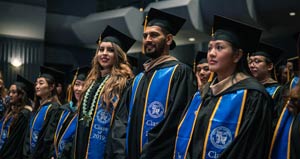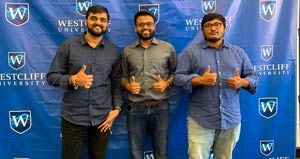Master of Science in Computer Science (MSCS)
The Master of Science in Computer Science (MSCS) program is designed to advance the professional careers of technologists in the field of computer science. The program incorporates the overall infrastructure and implementation of computer science initiatives. The importance of managing computer science and software projects is the main theme of the program and involves the integration of technology, people, and strategic development. Several aspects of computer science and associated technologies, such as the benefits of emerging programming languages and technologies, project management of software initiatives, and the development cycle of computer science related to strategic planning are investigated to provide graduates with advanced insight into the field of computer science.
MSCS Program Description
The Masters of Science in Computer Science (MSCS) is designed to advance the professional careers of technologists in the field of computing. It presents a modern curriculum that challenges students to apply principles of design, critical and algorithmic thinking, innovation, management, and problem-solving to the field of computer science. It prepares students to move into advanced careers in computer science and software by providing the necessary advanced skills and knowledge in computer systems, software, and telecommunications to effectively implement computerization processes across several industries including healthcare, manufacturing, research and development, education, finance, and other fields which require advanced computerization to remain competitive in the global economy.









